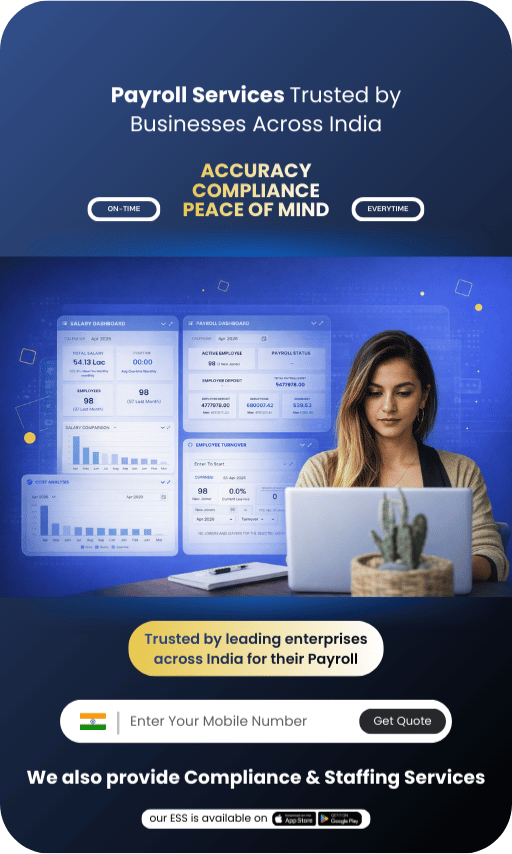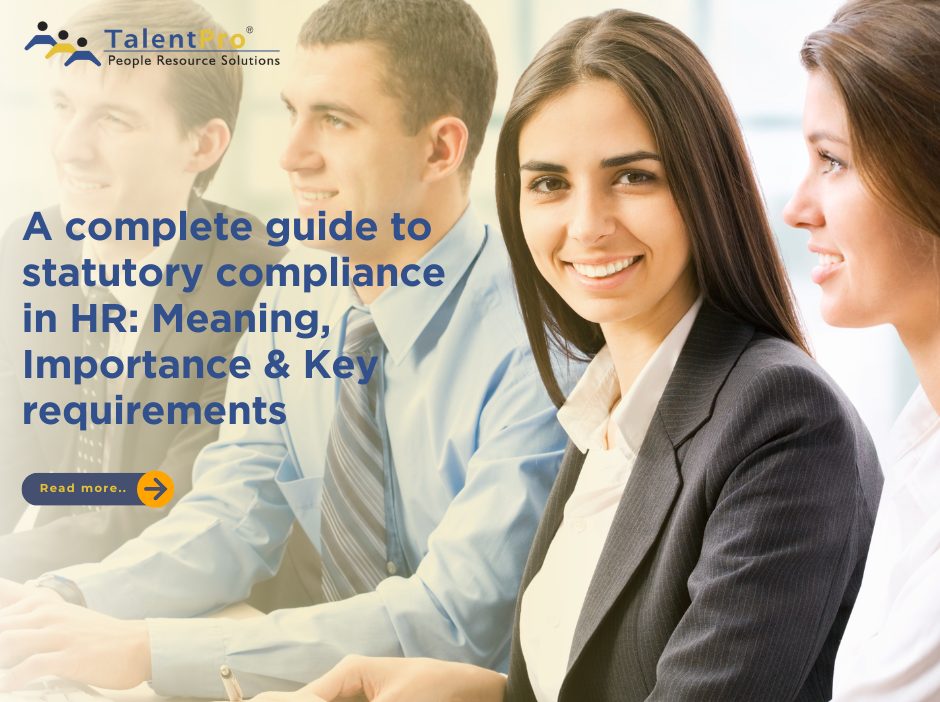What is Payroll management in HR?
The process of managing all facets of employee compensation, such as salary computations, tax deductions, on-time disbursements, and statutory compliance (PF, ESI, PT, LWF, etc.), is known as payroll management in HR (Human Resources). It guarantees that all employees receive accurate, timely, and compliant payments in accordance with company policies and applicable laws. HR Payroll Management is the process of managing employee compensation, ensuring timely and accurate payment of salaries, benefits, bonuses, taxes, and deductions. It is a critical function within the HR department that combines administrative, financial, and compliance responsibilities.
This procedure, which lies in the nexus of finance and human resources, is essential to preserving compliance, openness, and trust inside a company.
Payroll management's primary roles in HR
Calculating salary based on employee attendance, leaves, working hours, bonuses, and deductions, such as loans or advances.
Compliance and Statutory deductions includes TDS under the Income Tax Act, Professional Tax, Employees’ State Insurance, Provident Fund, and Labor Welfare Fund.
Read more: (What is payroll managemenr in HR?)
Components of Payroll management's in HR
Salary computation
based on working hours, bonuses, employee attendance, leaves, and deductions like advances or loans.
Compliance and Statutory deductions
includes TDS under the Income Tax Act, Professional Tax, Employees’ State Insurance, Provident Fund, and Labor Welfare Fund.
Creation of payslip
Regular and transparent salary slips allow workers to monitor their income, tax information, and deductions.
Payment of salaries
coordinating with payment partners or banks to guarantee that employee salaries are credited on time.
Managing exits and New hires
comprises full and final settlement, prorated pay, onboarding benefits, and final tax calculation.
Recordkeeping and Audit
keeping accurate, verifiable records to support government inspections and internal audits.
Confidentiality and Data Security
Making certain that employees ensuring the highest levels of data security are used when handling tax and employee salary information.
Read more: (Mastering payroll management: A comprehensive guide)
The future of Payroll automation
Payroll automation is now a need rather than a luxury in a world where accuracy, efficiency, and compliance are unavoidable.
Accuracy that scales
Payroll procedures done by hand are prone to mistakes. Employees are always paid on time and accurately thanks to automation, which drastically lowers calculation errors.
Compliance in real time
Automated systems can quickly adjust to keep your company compliant and audit-ready in the face of constantly shifting labor and tax laws.
Simple integration
By integrating with HR, finance, and attendance systems, modern payroll tools eliminate departmental silos and improve data consistency.
Improve the experience of employees
Self-service portals increase employee satisfaction and transparency by providing immediate access to payslips, tax information, and leave balances.
Growing with your company
Payroll automation easily expands with your workforce, regardless of how many workers you’re managing—50,500, or 5,000—across several locations.
places.
Common Payroll challenges faced by HR
- Handling intricate multi-state compliance mandates with disparate state-specific legislation
- Payroll administration for independent contractors, contract workers, and part-timers with varying terms
- Delays in managers’ or finance departments’ delivery of accurate data
- Late or absent updates to tax slabs and modifications to regulatory policies
- Inadequate communication between payroll processing, HRMS, and attendance tracking systems
.
FAQs
Payroll management in human resources is the process of calculating employee salaries, subtracting taxes and statutory contributions, creating payslips, and ensuring timely salary disbursements. It also involves maintaining records and ensuring that labor laws are observed.
Base pay, housing allowance, bonuses, professional tax, deductions (PF, ESI, and TDS), and reimbursements are all crucial components.
HR overseas collecting employee feedback, managing attendance and absences, putting bonus plans or pay adjustments into place, ensuring that regulations are followed, and providing staff with payroll information.
The laws that payroll in India must follow include the Provident Fund (PF), Employees’ State Insurance (ESI), Professional Tax (PT), Income Tax (TDS), Minimum Wages Act, Payment of Bonus Act, and Payment of Gratuity Act.
Payroll is frequently a shared duty. The finance team usually handles accounting and fund transfers, while HR is in charge of employee data, attendance, leaves, and pay adjustments. Payroll is either handled by a separate payroll department or is entirely owned by HR in many businesses.
In India, the majority of businesses process payroll on a monthly basis. Payroll may be processed weekly or biweekly in certain industries, such as contract staffing or construction.
Indeed. To automate computations, guarantee accuracy, produce paystubs, and maintain compliance with the most recent tax regulations, many companies use payroll software or cloud-based systems. Automation saves time and lowers errors.
The reputation of the business, legal compliance, and employee satisfaction are all impacted by payroll accuracy. Payroll errors may result in lawsuits, government fines, and employee mistrust.
Financial penalties, interest on overdue payments, and in extreme situations, legal action or problems with a business license, can result from noncompliance.
Of course. Payroll that is automated or outsourced benefits even small businesses. It lowers errors, lowers compliance risks, and helps guarantee on-time payments.











